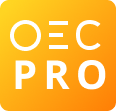Serbia-Austria Trade: In 2023, Serbia exported $834M to Austria. The main products that Serbia exported to Austria were Light Fixtures ($73.7M), Cleaning Products ($52.5M), and Hot-Rolled Iron ($44.5M). Over the past 5 years the exports of Serbia to Austria have increased at an annualized rate of 7.47%, from $582M in 2018 to $834M in 2023.
In 2019, Serbia exported services to Austria worth $301M, with Transportation ($91.8M), Other business services ($75M), and Computer and information services ($52.6M) being the largest in terms of value.
Austria-Serbia Trade: In 2023, Austria exported $955M to Serbia. The main products that Austria exported to Serbia were Packaged Medicaments ($41.6M), Raw Aluminium ($30.4M), and Locomotive Parts ($27.8M). Over the past 5 years the exports of Austria to Serbia have increased at an annualized rate of 7.25%, from $673M in 2018 to $955M in 2023.
In 2011, Austria exported services to Serbia worth $342M, with Communications services ($152M), Other business services ($78M), and Transportation ($52.9M) being the largest in terms of value.
Comparison: In 2023, Serbia ranked 35 in the Economic Complexity Index (ECI 0.76), and 69 in total exports ($32.6B). That same year, Austria ranked 8 in the Economic Complexity Index (ECI 1.56), and 31 in total exports ($204B).

